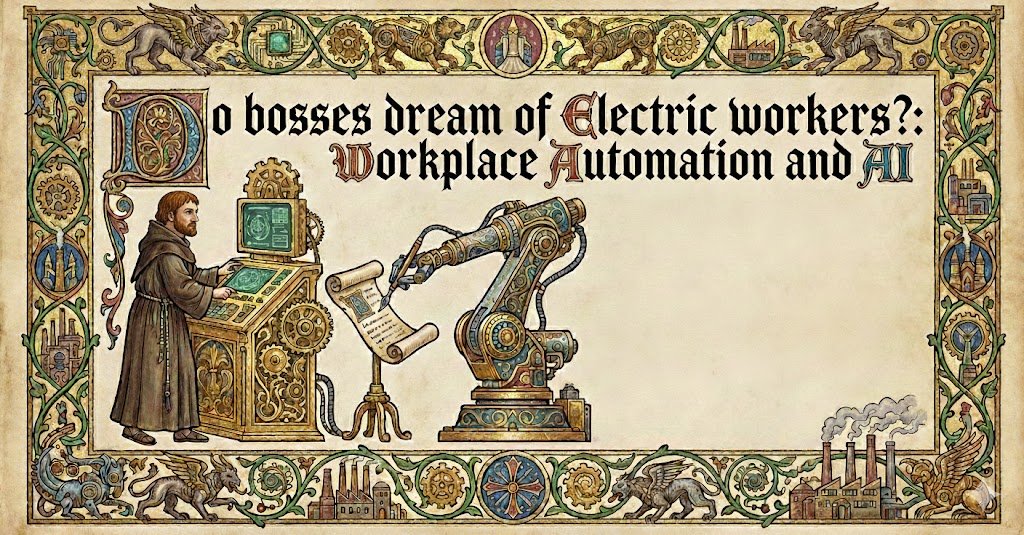Here are some of the classes that Dr. Newton has taught at UNC Charlotte. Email him for more details and current course offerings.

HIST/CAPI 3000- Do Bosses Dream of Electric Workers?: Workplace Automation and AI
Will AI replace American workers, or will AI increase our productivity? Will this technology fundamentally alter our economy? This class will look at the history of new workplace technologies over the past 225 years to help students understand what changes LLM AI might bring to the workplace, to the American economy, and, most importantly, what role citizens and workers have had in affecting the trajectory of technological change.
HST 1575-Capitalism and Democracy
This class is an examination of issues or concepts related to American democracy, with attention to key historical documents including but not limited to: the Declaration of Independence, the U.S. Constitution, the Federalist Papers, the Gettysburg Address, the Emancipation Proclamation, and Dr. Martin Luther King Jr.’s Letter from Birmingham Jail. Additionally, CAPI/HIST 1575 will explain the founding ideas of American capitalism. The class explores how capitalism helped to end undemocratic forms of government and explains how capitalism created a new contradiction in American democracy through the rise of an unelected capitalist class. Students will read documents from government officials, economists, workers, activists, and intellectuals, all of whom tried to further the goals of capitalism or who tried to constrain capitalism in order to make America more democratic.
CTCM 2530- The Invention of Private Property
Historian Steven Stoll claims that “Before the sixteenth century, no one in England owned land…” Today there are few things in England or America that are un-owned. How did western society transform from a culture in which many important assets were held “in common” to a culture that protects and encourages exclusive private property? What are the ramifications of these changes? This class will explore this transition focusing primarily on England, Indigenous America, the colonies, and the United States. The class spans from the pre-Columbian period to the present day.
HIST 3000- Nature and American Capitalism
This class examines how capitalism worked on and in various environments across America from pre-Columbian times to the present. Throughout the semester students will learn how capitalism altered the environment and how this economic system changed over time in reaction to natural forces. The readings and discussions focus on how people have attempted to make nature valuable and the obstacles they encountered in the process. Students can expect to learn how a basic knowledge of the environmental sciences can enrich their understanding of history and economics. Some of the topics covered in this class include: pre-Columbian indigenous economic activity, ecological imperialism, agricultural economics, ecosystem services, water history, slavery, the history of the body, western expansion, the extractive industries, monetary history and theory, conservation, preservation, the Dust Bowl, the New Deal, food systems, and climate change.
HIST/CAPI- 1512 Intro to Capitalism Studies: Capitalism in the US and Beyond
This course provides students with an overview of the history of capitalism for the last 300 years, with special attention paid to the local conditions in the United States. We will explore how and why capitalism changed during these centuries and the impacts of these changes on society. This is a course exploring historical change, but students will be introduced to some of the key analytic tools used in economics and other social sciences. Students will develop a richer understanding of the causal forces that link the economy, society, culture, and the natural environment. The course emphasizes that capitalism is not natural or trans-historical, but rather is a social process, with a history of change over time.
CAPI/HIST 2000- Labor vs. Capital: Class Conflict in American History
This course provides a general introduction to the history of workers and workers’ movements in America from the colonial period to the present. This class will teach you how labor functions within a capitalist economy, how capitalism benefited workers at times, and how it disadvantaged them at other times. This class will pay special attention to how notions of race, ethnicity, class, gender, and citizenship status contributed to workers’ freedom as well as moments of solidarity, and moments of fragmentation among workers. This class will teach you how working cultures and environments helped to create racial and gender identities.
HIST 1161- US History since 1865
This class will explore the history of the United States of America from the end of the Civil War to the present. This is a long and complex story, and rather than attempting to cover everything that happened in one semester this course creates a specific narrative organized around three major themes. 1) Reunification, immigration, and economic modernization, 2) War and fear in the early twentieth-century, 3) The Cold War, Movement Cultures, discontent, and the end of history. As with all narratives, this course takes a specific perspective, which is history from the bottom up. This means that whenever possible I will focus on how common people and the under-classes motivated historical change and how these people especially were affected by changes that occurred over time. You will learn how radically different life was for most Americans in the past and the ways in which the past was similar to the present.